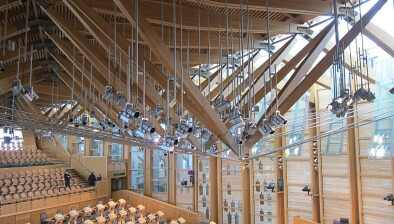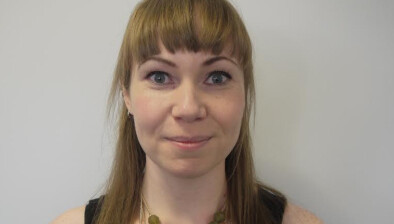Warm homes ‘could see a third of excess winter deaths avoided’
 Campaigners called on the Scottish Government to take further action to improve the energy efficiency of Scotland’s homes in the wake of new statistics showing that an excess of 2,720 people died in winter 2016/17 compared with warmer months.
Campaigners called on the Scottish Government to take further action to improve the energy efficiency of Scotland’s homes in the wake of new statistics showing that an excess of 2,720 people died in winter 2016/17 compared with warmer months.
The Existing Homes Alliance said the forthcoming Warm Homes Bill provides a crucial opportunity to make sure every home is properly insulated and heated.
The Alliance was speaking as new figures showed that there were 20,930 deaths registered in Scotland in the four months of winter 2016/17 (December to March), compared with 20,509 in winter 2015/16.
Comparing the number of deaths in the four winter months with the average for the two adjacent four-month periods, the seasonal increase in deaths during winter 2016/17 was 2,720, compared to 2,850 for the previous winter.
The National Records of Scotland, which compiles the figures, said that while the long-term trend since the early 1950s has been downward, the five-year moving average for excess winter deaths has barely changed since the early 2000s.
Lori McElroy, chair of the Existing Homes Alliance, said: “The Warm Homes Bill is a historic opportunity for MSPs - they can make sure that this generation is the last to suffer the terrible consequences of living in cold, damp homes. We welcome the fact that the Scottish Government has committed to eradicating poor energy performance of homes as a reason to be in fuel poverty, and now we need to take action to make that a reality.
“Every year, Scotland sees more deaths in winter than in other seasons, and last year was no different. Research by the World Health Organisation says that around 30% of these deaths could have been avoided if everyone in Scotland lived in a home that was adequately insulated and heated.
“This is literally a matter of life and death. We can no longer afford to live in a country where people die because they live in a cold home.”
Commenting on the new statistics, Royal College of Nursing (RCN) Scotland’s director, Theresa Fyffe, said: “The winter mortality statistics are an annual reminder of just how many of the most vulnerable in our society are at risk from fuel poverty. They face the challenge of trying to live in cold, hard-to-heat homes and, as these statistics show, too often the price they pay is too high. Nurses witness the individual personal stories behind the statistics every year. They know that only ending cold homes and cutting fuel bills through improving the energy efficiency of Scotland’s homes can reduce the unnecessary loss of life. Every year we call for this issue to be a priority for political parties and we will continue to do so until it does.”
Sarah Beattie-Smith, senior climate and energy policy officer at WWF Scotland, said: “Far too many people in Scotland are suffering in cold, leaky homes. Improving the energy efficiency of our homes to an EPC rating of C by 2025 would not only go a long way towards eliminating fuel poverty, but it would create thousands of jobs in communities across Scotland and provide a much needed economic boost whilst playing a vital part in tackling climate change.”
George Donaldson, chair of the National Insulation Association Scotland, said: “Our members know first-hand the difference that insulation and energy efficiency measures can make. It can transform people’s lives. With the right support from government, and the right incentives for homeowners, we could make every home in Scotland warm and easier to heat. And this kind of investment would also give a much-needed boost to the Scottish economy, supporting businesses and employment.”






